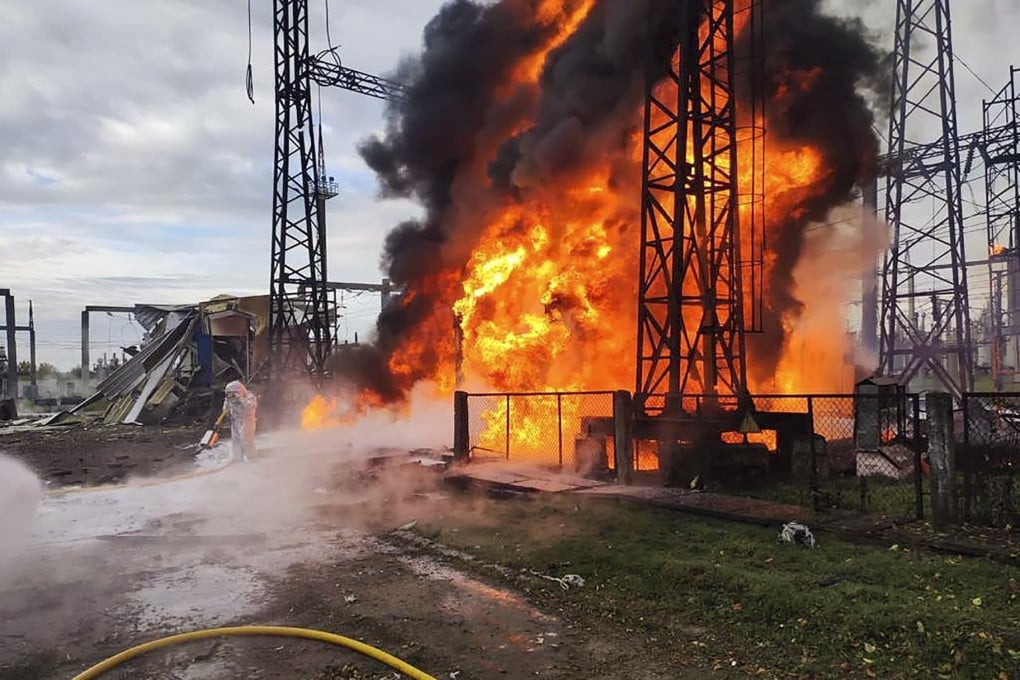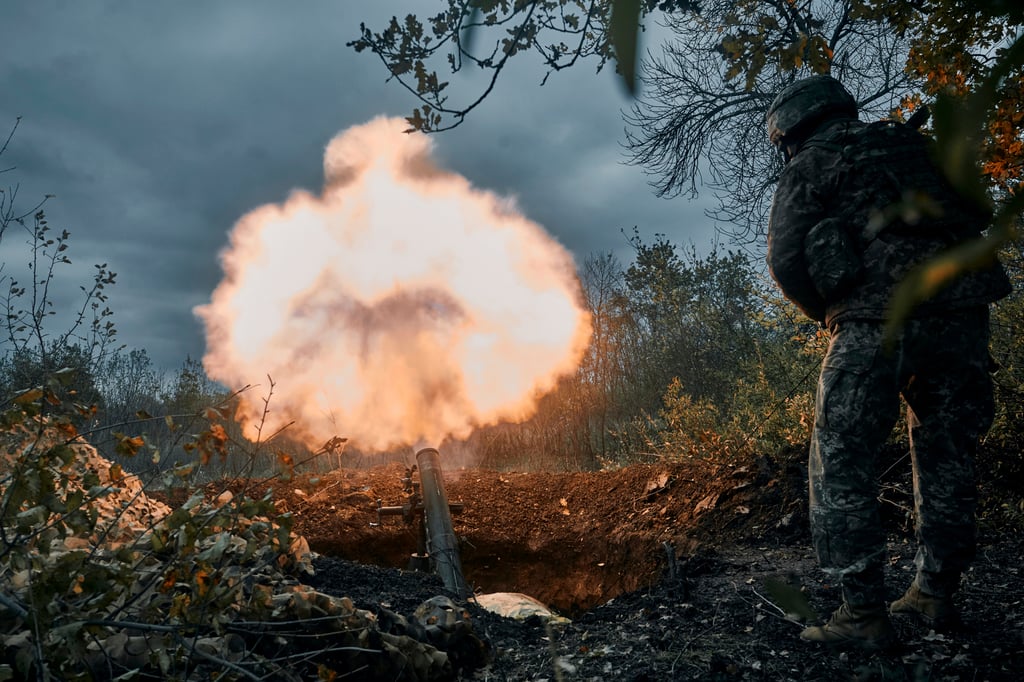Ukraine war: Kyiv warns of ‘humanitarian catastrophe’ from Moscow’s attacks on energy facilities, more flee Kherson
- Ukrainian President Volodymyr Zelensky said Russia fired another 36 missiles at Ukraine. ‘The aggressor continues to terrorise our country,’ he said
- The Russian Defence Ministry confirmed a large number of missile attacks on several parts of Ukraine, sparking air raid alarms nationwide on Saturday

Russia’s escalating attacks on Ukraine’s energy infrastructure could spark a major “humanitarian catastrophe” as the war-battered country braces for the arrival of snow and cold, the government in Kyiv said on Saturday.
President Volodymyr Zelensky said Russia had fired another 36 missiles at Ukraine. “The aggressor continues to terrorise our country,” he said in remarks from Kyiv.
Many of them were shot down by air defences but others managed to strike energy facilities, he said, urging world powers to help “stop this terror.”
He thanked energy service providers and grid operators who were in the process of rebuilding critical sites despite the risks. Some 40 per cent of the country’s energy infrastructure has already been destroyed, according to Kyiv.

Some 1.5 million customers of the Ukrenergo power company were without electricity in the country, Zelensky’s office said.